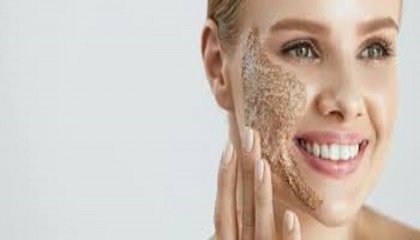Why walnut scrubs are not good for your skin

Shawdesh Desk: Remember the beauty scene going into a tizzy as Kylie Jenner launched her skin care brand? But within 24 hours, the line was already caught in controversy, with the Kylie Skin Walnut Face Scrub, the walnut-based exfoliating cleanser sparking concerns about damaging the skin, reports The Indian Express.
As a food, walnuts are packed with numerous health benefits. It’s believed that the nut is equally good for the skin and has many rejuvenating benefits, especially in the form of a scrub. But is it really so?
Walnut face scrubs, as the name implies, includes small particles of the shell. How it works is pretty simple: it aids in exfoliation of the skin because it removes dead cells from the surface. Walnut face scrubs can, however, be harmful to the skin since its texture can be too harsh, especially for the face. Using a walnut scrub as an exfoliator can, therefore, cause dry skin, or even lead to unwanted peeling.
Are walnut facial scrubs damaging to your skin?
As with most things, it is imperative to use facial scrubs in moderation. Too much of exfoliation will not give you the smooth skin you are aiming for, but will rather strip off the natural oils and protective layer. And when it comes to walnuts, the powder is too harsh an ingredient.
Many facial scrubs use crushed walnut shells as their main ingredient, which can cause micro-tears in the skin. After all, if the skin is scrubbed repeatedly, it begins to protect itself by forming an even thicker layer of dead skin cells on the surface leaving you trapped in a vicious cycle of scrubbing and more scrubbing.
If a facial scrub is too harsh, contains irritating ingredients or is overused, it can leave the skin more prone to dryness and micro-abrasions, resulting in irritation and inflammation.
Should you be using a facial scrub at all?
It all depends on your face, your skin type and your needs. Experts categorise facial scrubs into two categories; physical and chemical.
While physical exfoliants include ingredients like jojoba beads, clay, sugar and salt, you may also use a muslin washcloth, sponge or brush or undergo microdermabrasion. These methods physically scrub your skin clean. Chemical exfoliants, meanwhile, use acids to exfoliate, the most common being glycolic acid, lactic acid and others like salicylic acid.
Which scrub is better: physical or chemical?
Generally, for your face, chemical exfoliants are the best option for ridding the skin of dirt and grime, without causing irritation. In fact, while the term ‘chemical’ insinuates harsher exfoliation, the effect is quite the opposite. Chemical exfoliation is gentler on your skin since it doesn’t involve scrubbing. However, physical exfoliation can be too harsh on the skin if not done properly, or done too frequently – like using walnut facial scrubs.
Can you scrub your face too much?
No matter what exfoliant you’re using, there is a high possibility of overdoing it; your face won’t be happy about it.
Over-exfoliation causes irritation, inflammation like acne, and makes you more susceptible to sunburn, while losing moisture and disrupting the natural skin barrier. Moreover, the dead skin cells start accumulating more than ever. As mentioned above, it begins to protect itself by forming an even thicker layer of dead skin cells.
Experts suggest limiting exfoliation to once or twice a week. Remember to soothe and protect your skin post-exfoliation by loading up on enriching moisturisers and sunscreen. Look for products with ceramides, hyaluronic acid and peptides to strengthen your skin barrier.























Leave a Reply